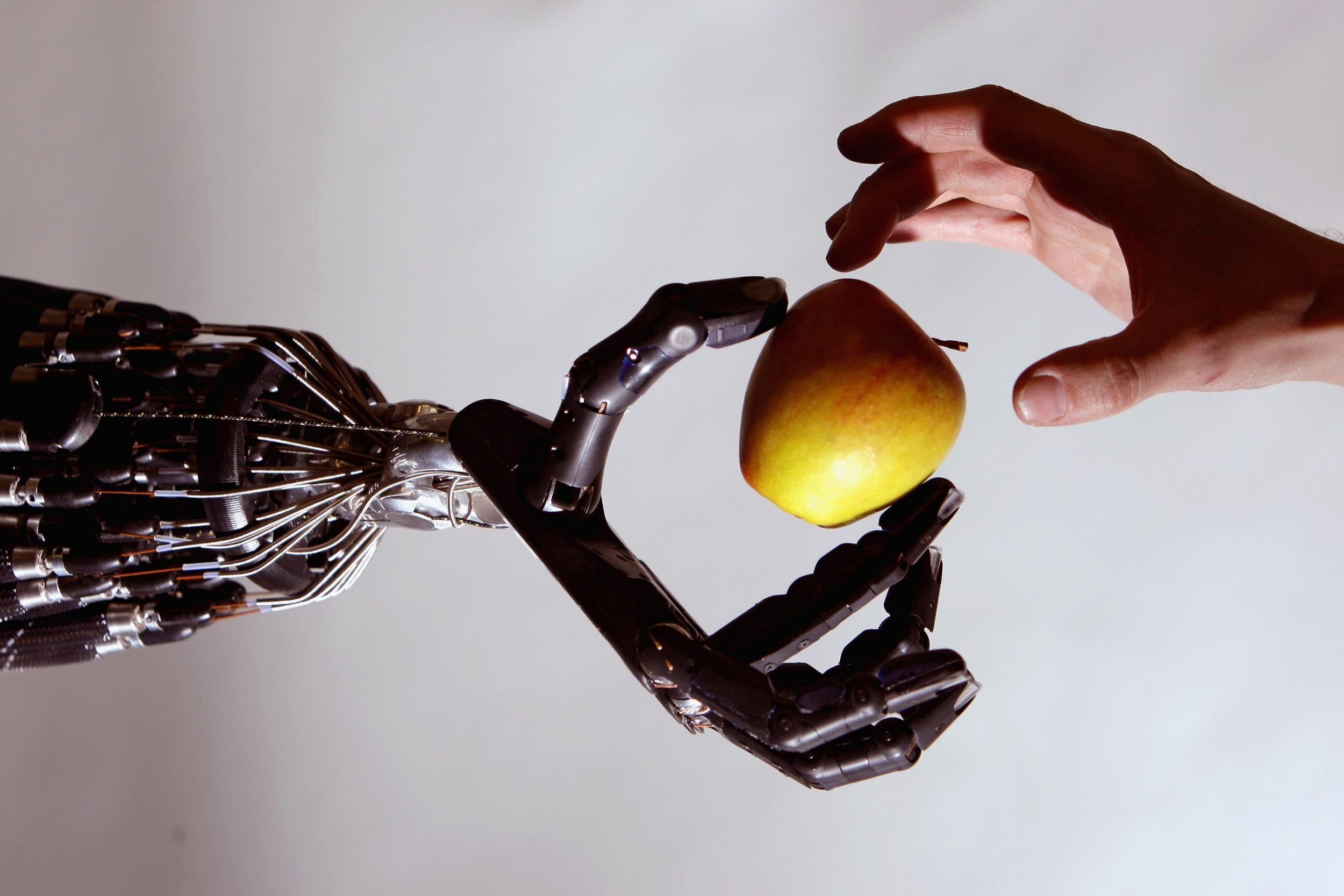The singularity: AI will make humans sexier and funnier, says Google expert
'We’re going to expand our minds and exemplify these artistic qualities that we value'

The much-heralded technological singularity will happen in 2029, according to Google’s director of engineering.
Ray Kurzweil, a futurist who has made a name for himself through his predictions, shared his thoughts about what’s in store for humans and machines in an interview with SXSW in Texas.
He believes that the so-called singularity – the moment when artificial intelligence exceeds man's intellectual capacity and creates a runaway effect, which many believe will lead to the demise of the human race – is little over a decade away.
“By 2029, computers will have human-level intelligence,” said Mr Kurzweil. “That leads to computers having human intelligence, our putting them inside our brains, connecting them to the cloud, expanding who we are.
“Today, that’s not just a future scenario. It’s here, in part, and it’s going to accelerate.”
However, unlike a number of famous experts, Mr Kurzweil isn’t worried about artificial intelligence.
Tesla CEO Elon Musk recently warned that AI could make humans irrelevant, and called for humans to merge with machines in order to continue serving a purpose.
Mr Kurzweil, meanwhile, believes that machines will improve us, and even help us become better humans.
“What’s actually happening is [machines] are powering all of us. They’re making us smarter. They may not yet be inside our bodies, but, by the 2030s, we will connect our neocortex, the part of our brain where we do our thinking, to the cloud.
“We’re going to get more neocortex, we’re going to be funnier, we’re going to be better at music. We’re going to be sexier. We’re really going to exemplify all the things that we value in humans to a greater degree.”
Stephen Hawking has gone further than Mr Musk, saying, ”You're probably not an evil ant-hater who steps on ants out of malice, but if you're in charge of a hydroelectric green energy project and there's an anthill in the region to be flooded, too bad for the ants. Let's not place humanity in the position of those ants.”
He has also suggested that a “world government” could be used to control technological advancements.
“Ultimately, it will affect everything,” Mr Kurzweil continued. “We’re going to be able to meet the physical needs of all humans. We’re going to expand our minds and exemplify these artistic qualities that we value.”
Join our commenting forum
Join thought-provoking conversations, follow other Independent readers and see their replies
Comments
Bookmark popover
Removed from bookmarks